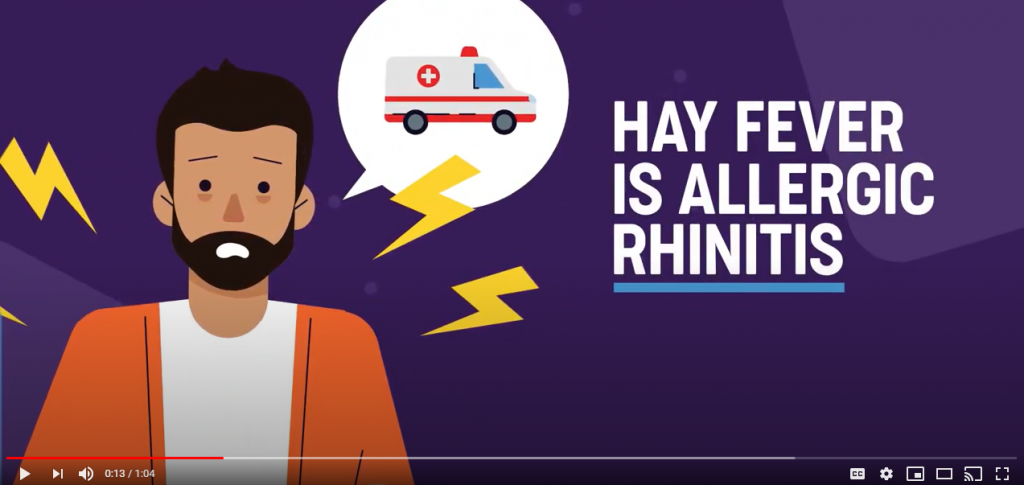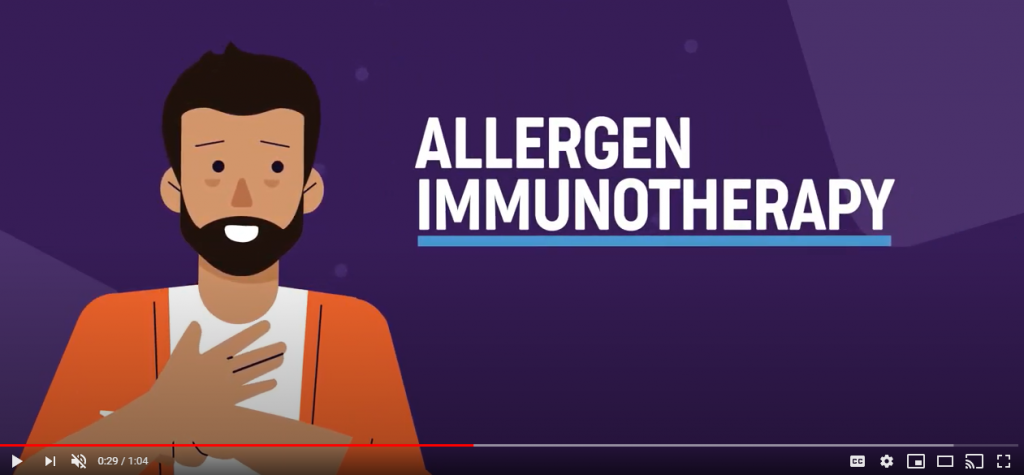As we navigate through what’s left of winter and the current COVID-19 environment, it is important to look ahead – think about spring and what it brings for people with asthma and allergies. Around 80% of people with asthma also have allergies, so don’t wait until spring is here and symptoms are present to start managing your asthma and allergy.
Did you know it takes several weeks for preventative medications to be effective
We know the most important approach to managing and preventing asthma symptoms during spring involves using an appropriate preventer medicine. Asthma preventer medicines need to be used for around 6 to 8, sometimes up to 12 weeks before they are effective at preventing symptoms and reducing sensitivity to triggers like pollen. So, if you aren’t already using one, the time to start is now. If you have been prescribed a preventer, it needs to be used daily, even when feeling well and used as prescribed, to maintain the anti-inflammatory benefit. Managing hay fever is an important part of overall asthma care as hay fever can make asthma worse and more difficult to control. Treatment of hay fever depends on the severity and frequency of your hay fever symptoms. People with asthma who also have allergies/hay fever may experience:
- More asthma flare-ups and attacks
- More visits to their doctor
- More asthma-related hospitalisations
- More time off work and school (and not the holiday kind!)
- Higher annual medical costs
But don’t worry, we’re here to help reduce the risk of this happening to you – by getting you prepared.
Tips for preparing for spring when you have asthma and allergies
- Get anAsthma Review
- Take an Asthma Control Test
- Identify your spring triggers and work with your doctor to develop a written Asthma Action Plan and hay fever or allergy plan as well. here
- Be prepared for both allergy symptoms as well as asthma symptoms
- Take your preventer medication even when well
- Check your device technique
- Learn the steps of Asthma First Aid
Access and download a Spring AsthmaChecklist here
Watch a quick video on Managing Asthma and Allergies here. 

Understand some of the allergy symptoms
Keep an eye out for some of the most common symptoms of hay fever (you don’t need to have all of them to take preventative medication):
- Itchy runny or blocked nose
- Itchy or watery eyes
- Sneezing
- Always feeling like you have a head cold
- Blocked nose
- Throat clearing or coughing to clear the throat
- Snoring
- Mouth breathing
Watch a quick video on Hay Fever 101. 

What hay fever and allergy treatments are available?
There is a range of different treatments available. Speak to your doctor or pharmacist about:
Corticosteroid nasal sprays
These intranasal corticosteroid sprays are the most effective treatment for persistent or moderate to severe hay fever symptoms. They work to reduce the swelling in the lining of your nose (just like your asthma preventer medications). They can reduce symptoms of hay fever, particularly nasal congestion (blocked nose) but need to be taken regularly to work properly – they may take a few days to work. Some corticosteroid nasal sprays are available over the counter at your pharmacy and others are available with a prescription. You should speak to your doctor or pharmacist about which nasal spray is best for you.
Antihistamines
Antihistamines tablets, syrups, intra-nasal sprays and eye drops are the most common choice for people with mild or occasional hay fever. They help to relieve a runny nose, sneezing, itching and eye symptoms. They are less effective in treating a blocked nose. Antihistamines are available over the counter at your pharmacy. You should avoid the types of antihistamines that can make you drowsy. Newer antihistamines known as non-sedating antihistamines are less likely to make you drowsy and are a common choice for people with milder or occasional symptoms of hay fever. Avoid using sedating antihistamines in children.
Saline sprays/irrigation
Saline solutions can be used to help clear nasal congestion, wash away dust, pollen and other irritants and as a result, have the potential to relieve hay fever symptoms. They should be used about 10 – 15 minutes before other medicated nasal sprays. Ask your pharmacist or doctor about preservative-free nasal salines or washes especially if you’re using other medicated nasal sprays. Saline solutions can be used to help clear nasal congestion, wash away dust, pollen and other irritants and as a result, have the potential to relieve hay fever symptoms. They should be used about 10 – 15 minutes before other medicated nasal sprays. Saline washes and sprays are available preservative-free and may be preferable for those with sensitive noses.
Decongestants
Decongestant nasal sprays or tablets are used to unblock the nose. They should not be taken for no more than a few days at a time. If you still continue to experience symptoms you should speak to your doctor. Ask your pharmacist or doctor about using a preservative-free nasal decongestant spray and when and how long to use it for. Discuss with your pharmacist or doctor which treatment option is best for your age (child or adult) and dependent on how often hay fever symptoms and how severe or bothersome they are to you or your child. When adding any medications, it is important to let your doctor know, particularly when purchased over the counter and not with a prescription.
Allergen Immunotherapy
Specific allergen immunotherapy is a targeted medical program involving gentle and gradual exposure to your trigger/s, called immunotherapy. The aim of this treatment is to desensitise the immune system to the known allergen so that it no longer overreacts to that allergen. Speak to your doctor for more information about immunotherapy or desensitisation. This may be an expensive treatment as it is currently not subsidised by the government. Benefits can be experienced within months after starting treatment but the full course of treatment will usually be up to several years. But it may be worth it, depending on how burdensome your symptoms are and the cumulative costs of current treatments.
Watch a quick information video on Allergen Immunotherapy. 

As we lead up to spring, keep checking in on our social media pages and website for tips and tricks for managing your asthma and allergies. We’ve put together helpful and practical information, so you can stay well with asthma this spring. In the meantime, if you want to read more about asthma and allergies, visit our website here.
Still have more questions about asthma and allergies?
Asthma Australia represents and supports the 2.7 million Australians living with asthma. To speak with an Asthma Educator call 1800 ASTHMA (1800 279 462) or book a call here and they will call you back when next available. 



Flo, Stallergenes Greer, and DuroKleen are campaign partners of Asthma Australia and have not been involved in the development of this article.






